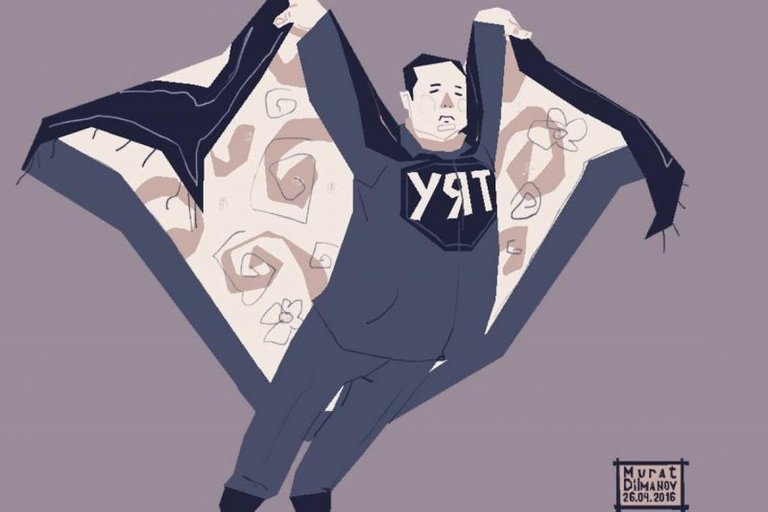A new superhero called Uyatman appeared on the scene in Kazakhstan a couple of years back. As long as Uyatman was on patrol, the public could rest safe in the knowledge that women would not be caught out and about behaving indecently.
Uyatman was the brainchild of cartoonist Murat Dilmanov, who developed the character as a way of poking fun at a creeping mood of censoriousness in the country. The superhero’s name was a waggish compound of the word uyat(shame) and man.
In the past weeks, there has been another wave of moralizing vigilantism that suggests the trend shows no sign of abating, and may even be deepening. It all began when Aizhan Baizakova, a 22-year old actress and social media celebrity, was thrown into jail for three days on charges of hooliganism after a party on December 17 at her Almaty nightclub, Zakova, got out of control. Law enforcement officials acted after receiving a tip that Baizakova had offered cash prizes to tempt women partying at her club to strip naked onstage.
More indignation followed. Baizakova was inundated with abuse and threats of violence. A video widely shared online showed a group of burly men, a couple of them uneasily clenching their fists, making a collective statement of condemnation of Baizakova and her actions. The only person speaking in the video, an unnamed middled-aged man in a padded blue jacket, issued a sweeping condemnation of female promiscuity and enjoined Kazakh men to stop women from indulging in such behavior.
“To strip and then wear a saukele [traditional Kazakh bridal headdress]. What is this disgrace and shame? We address this video to anybody who has honor and pride. Support us!” the man in the video says.
Sure enough, a few days before New Year, a large group of rowdy men turned up for an impromptu rally outside the Zakova nightclub.
“Can we not forbid this kind of thing? If they had not arrested her for three days, we would have gone in and smashed up her club,” Talgat Ryskulbekov, a rabble-rousing activist with a conservative group called Zheltoksan Ruhy, told reporters at the scene.
A few days later, Baizakova relented and closed up shop. She had fallen victim to uyat, the label used to describe the phenomenon of public shaming campaigns — almost all of which are directed at women.
Hi! I am a robot. I just upvoted you! I found similar content that readers might be interested in:
https://eurasianet.org/s/kazakhstan-morality-mavens-monitoring-women